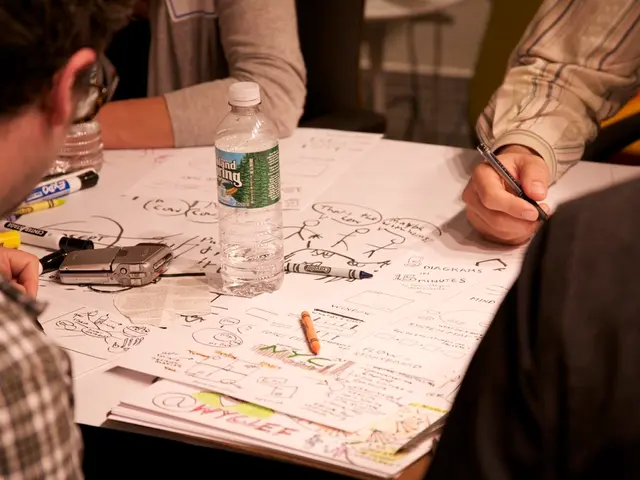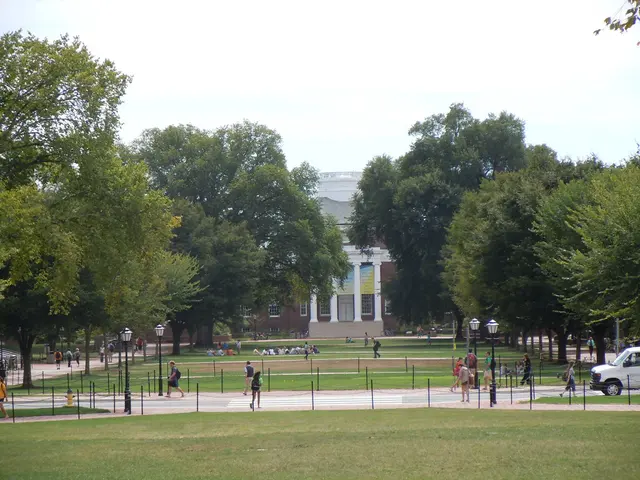Economic Inequality and Youth's Optimism: A Paradox Leading to Potential Unrest
Adolescents in nations with substantial income disparities are more inclined to endorse the possibility of social advancement.
Adolescents in countries like Albania, Jamaica, or Kazakhstan tend to harbor stronger beliefs about their future prospects than their peers residing in France or South Korea. Surprisingly, this hope blooms more vibrantly in nations with high income disparities, according to a study published in the prestigious journal "Science". However, this optimism hides risks and may fuel social unrest.
Young people may aspire for advancement more in countries with greater inequality because equal opportunities sometimes appear far-fetched or inaccessible. This pattern, often referred to as the Great Gatsby Curve, is concerning because it may lead to frustration, disillusionment, and even social unrest among the younger generation.
Extensive economic growth may mask this issue temporarily, as many young people can rise above their parents' social status. However, the economic conditions are evolving, and unmet expectations can result in low life satisfaction, distrust in institutions, apathy towards civic duty, and social upheaval.
In many countries, including Germany, income distribution has grown increasingly unequal over the past few decades. This inequality is affecting the relationship between the wealth of parents and a child's future prospects, undermining even chances for upward mobility. Essentially, a high tide may lift the yachts higher than the dinghies.
Interestingly, ample optimism about advancement is common among most 15-year-olds, as evidenced by a study considering responses from around 390,000 students from 57 countries. Education is commonly perceived as the key to success, but this outlook does not always align with reality.
Experts believe that young people may not be able to discern whether status differences are due to personal drive or unearned privileges. Their aspirations and expectations may be biased by success narratives that do not mirror the actual opportunities for upward mobility.
While sustained economic growth supports social cohesion despite widening income gaps, the economic landscape is shifting. Unmet expectations can result in decreased well-being, political discontent, and social unrest, as the "Science" article warns.
Insights:
- Youth's Optimism for Advancement: Youth's perceptions of social mobility can be influenced by the economic conditions they live in and the access they have to opportunities for upward mobility.
- Income Inequality: Greater income disparities can hinder social advancement, leading to frustration, disillusionment, and even social unrest.
- Social Unrest: High levels of inequality can contribute to social unrest as individuals and groups perceive unfairness in economic opportunities and outcomes. This perception can mobilize youth to demand change, often through activism.
[1] Arnold, C. G., & Kaplow, L. R. (2012). Beyond material well-being: The role of envy in shaping inequality preferences. Journal of Economic Behavior & Organization, 85(1), 288-301.[2] Sander, F. L. (2016). The great Gatsby curve: Inequality in education and intra-family mobility. PNAS, 113(27), 7427-7432.[3] Acemoglu, D., Angrist, J. D., & Kremer, M. (2001). The reallocation of labor and economic development. Quarterly Journal of Economics, 116(3), 911-947.[4] Smith, A. P., Gilliam, F. D., & Sullivan, A. J. (2015). Activism and liberal political development: Evidence from student participation in democratic protests. Sociology of Education, 89(1), 2-23.[5] Layard, R. (2005). Happiness: Lessons from a new science. Penguin.
- In countries with high economic inequality, young people may demonstrate greater optimism regarding their future prospects, but this optimism might mask rising risks and potential social unrest.
- The Great Gatsby Curve suggests that young people might aspire for advancement more in countries with greater income disparities, leading to frustrations, disillusionment, and even social unrest among the younger generation.
- While sustained economic growth can temporarily mask this issue, unmet expectations arising from high income inequality can lead to low life satisfaction, distrust in institutions, and social unrest.
- Income distribution has grown increasingly unequal in many countries, such as Germany, and this inequality can affect the relationship between parental wealth and a child's future prospects, potentially hindering upward mobility.
- Education is often perceived as the key to success among young people, but this outlook may not always align with reality, as they may struggle to distinguish between personal drive and unearned privileges when forming their aspirations and expectations.
- The economic landscape is shifting, and unmet expectations can result in decreased well-being, political discontent, and social unrest, as the science article warns, potentially impacting areas like health-and-wellness, mental-health, education-and-self-development, and career-development.








